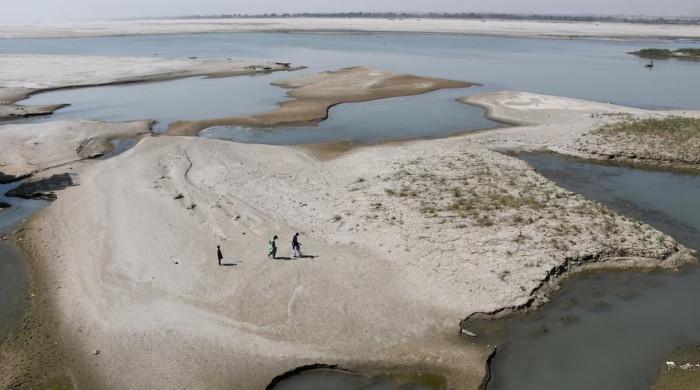In light of the continuous hostility of India to Pakistan, marked by repeated violations of bilateral and international obligations, it is imperative to examine recent developments concerning the Treaty of Indus (TIWT) and the strategic suspension of the SIMLA Agreement.
The two instruments are fundamental to the legal and geopolitical relationship between the two countries. Under international law, the position of Pakistan remains principle, well founded and defensible.
The Industry Water Treaty, signed in 1960 by India and Pakistan with the World Bank as a guarantor, is a binding international agreement. The treaty allocates control of the oriental rivers (Ravi, Beas, Sutlej) to India and grants the rights of Pakistan on Western rivers (Indus, Jhelum, Chenab), subject to certain limits. Above all, article XII of the treaty explicitly provides that it “should only be terminated by agreement of the two governments”, making any attempt at unilateral withdrawal legally zero and internationally untenable.
The treaty does not include any provision which allows a unilateral withdrawal by one or the other of the parties. The only legally authorized options are its continuation, or its amendment or termination by mutual consent. This shows a critical legal reality: although the treaty authorizes a negotiated reform, it unequivocally prohibits unilateralism.
Any statement or Indian action suggesting a unilateral exit from the treaty is in direct violation of its express terms and the principles of international law.
This is not the first time that India has threatened to disrupt or unilaterally abandon the Industry Water Treaty. On several occasions, Indian officials have made provocative declarations concerning the diversion of water flows legally allocated to Pakistan, acts that Pakistan rightly considered hostile and equipped with a declaration of war. In response, the Pakistan National Committee (NSC) has always published solid refutations based on evidence, characterizing movements such as serious violations of international law and serious threats to regional peace and stability.
The NSC reiterated Pakistan’s commitment to respond through legal, diplomatic and strategic channels in accordance with constitutional and international standards.
India attempts to bypass or undermine the framework of the Treaty clearly violates international legal obligations. Given the role of the World Bank as a third -party guarantor, Pakistan has several ways available under international law to contest the conduct of India, in particular the mechanisms for the settlement of integrated disputes of the Treaty, the use of the International Court of Justice and other international arbitration forums.
Pakistan must adopt a proactive legal strategy to defend its water rights. This includes invoking the provisions of settlement of disputes in the F and G appendices of the treaty, whether by appointing a neutral expert or by entering a procedure before an arbitration court.
Given the repeated offenses of India, Pakistan is also justified to hire the UN and ask the World Bank to ensure compliance with the stipulations of the treaty.
With regard to the 1972 Simla agreement, Pakistan’s recent suspension of the agreement is both legally justified and diplomaticly strategic. For decades, India has abused the agreement to block international attention to the question of cashmere, insisting on exclusive bilateralism. However, the unilateral revocation of India of article 370 of its constitution, its demographic engineering in Jammu-et-Cachemire occupied by India, and its continuous violations of human rights have made the bilateral mechanism disappeared.
The suspension of the SIMLA agreement reactivates the jurisdiction and the relevance of the United Nations Security Council resolutions on cashmere. These resolutions explicitly call for a plebiscite to allow the cashmere people to determine their political future.
By suspending the agreement, Pakistan is no longer legally limited to bilateral avenues and cannot reinterpret the dispute from cashmere, which firmly puts it back on the global diplomatic and legal agenda.
The main reason for the deterioration of Indo-Pak relations lies in the aggressive and destabilizing behavior of India, in particular the operations of false flag orchestrated, the disinformation campaigns and the terrorism sponsored by the state targeting Pakistan. Incidents such as Pulwama’s attack and Balakot air strikes, which are widely considered as provocations with political motivation, illustrate India’s belligerent approach to regional security.
Pakistan’s legal position on the Industry Water Treaty and the cashmere question is firmly rooted in international law. The international community – in particular the World Bank and the UN – must play a more active role in the holding of responsible India. Meanwhile, Pakistan must continue its legal advocacy, its strategic diplomacy and its resistance in principle to safeguard its sovereignty and ensure regional peace.
Pakistan is on a strong legal basis with regard to the Industry Water Treaty. The suspension of the SIMLA agreement not only represents a lawful response, but also a necessary strategic change. These steps demonstrate the company of Pakistan resolved to deal with the hostilities of India with constitutional clarity, legal integrity and international legitimacy.
The writer is a defender of the Supreme Court of Pakistan with 25 years of legal status. It can be reached: [email protected]
Warning: The points of view expressed in this play are the own writers and do not necessarily reflect the editorial policy of PK Press Club.TV.
Originally published in the news




